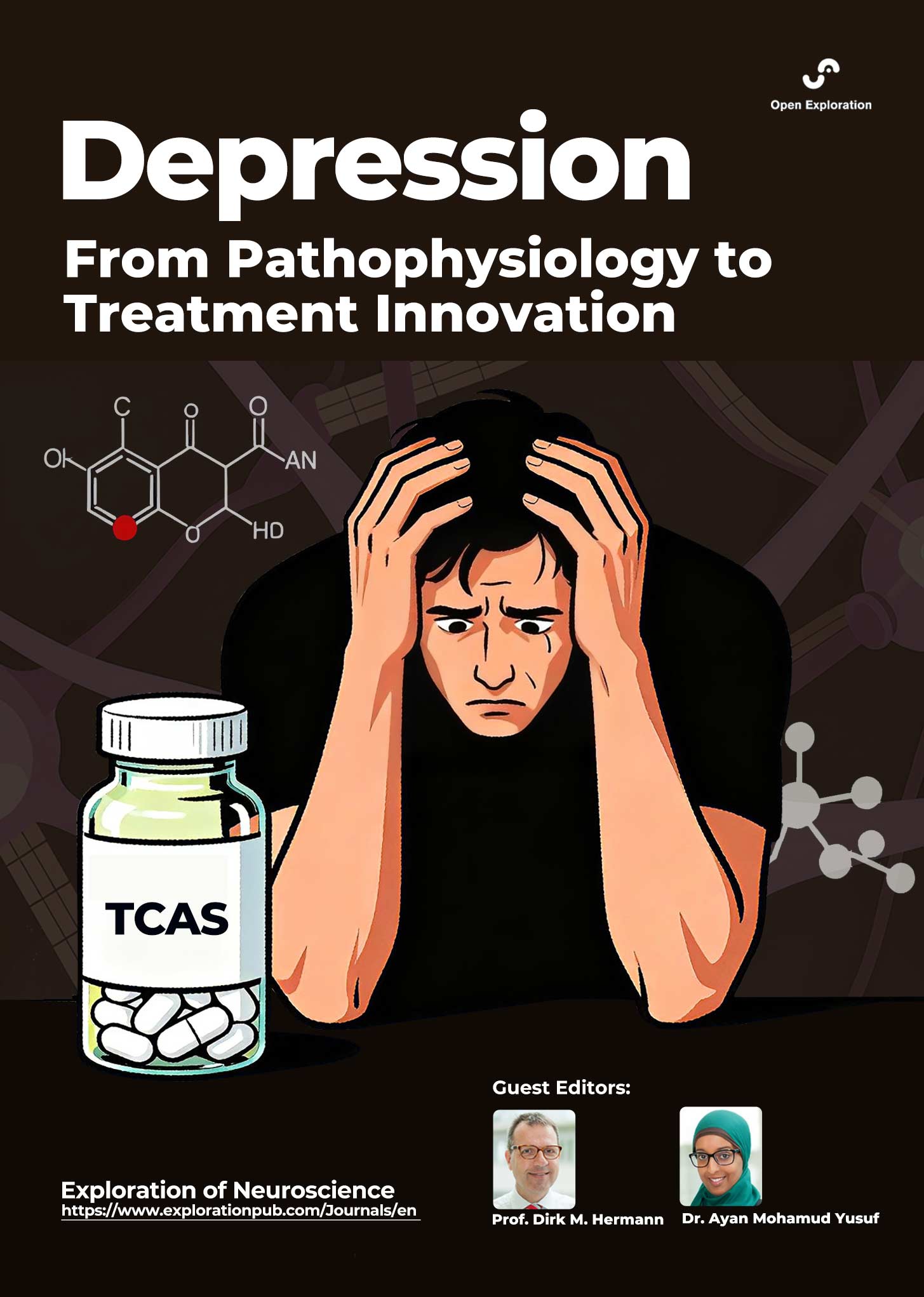
Depression: From Pathophysiology to Treatment Innovation
Guest Editors
Prof. Dirk M. Hermann E-Mail
Professor of Vascular Neurology, Dementia and Ageing Research, Department of Neurology and Center for Translational and Behavioral Neurosciences, University Hospital Essen, University of Duisburg-Essen, Essen, Germany
Research Keywords: Ischemic stroke, neuroprotection, neurorestoration, depressive disorders, brain remodeling, angiogenesis, stem cells, extracellular vesicles
Dr. Ayan Mohamud Yusuf E-Mail
Department of Neurology and Center for Translational and Behavioral Neurosciences, University Hospital Essen, University of Duisburg-Essen, Essen, Germany
Research Keywords: Ischemic stroke, neuroprotection, neurorestoration, depressive disorders, brain remodeling, angiogenesis, stem cells, extracellular vesicles
About the Special lssue
Depression is one of the most prevalent and disabling psychiatric disorders globally, posing a major challenge to public health. Despite decades of research, its cellular pathogenesis remains only partially understood. Traditional antidepressant treatments, which primarily target monoaminergic neurotransmitter systems, show limited efficacy for a significant portion of patients. Treatment-resistant depression (TRD) continues to demand new and more effective therapeutic strategies.
Recent findings are challenging long-standing models and pointing toward a broader, more complex understanding of depression. There is growing evidence that neuroinflammatory processes, disruptions in neuroplasticity, glutamatergic dysfunction, circadian biology, and the gut–brain axis contribute to the pathophysiology of depressive disorders. At the same time, novel interventions such as transcranial magnetic stimulation (TMS), ketamine, and electroconvulsive therapy (ECT) are expanding our understanding of the mechanisms underlying depression beyond the monoaminergic framework.
This Special Issue aims to present innovative and interdisciplinary research that advances our understanding of the molecular mechanisms underlying depression. We welcome original research articles, reviews, and methodological papers on topics including (but not limited to):
• Molecular mechanisms of depression
• Neuroimmune and inflammatory contributions to depressive pathology
• Mechanistic studies of antidepressants, ketamine, TMS, ECT, and other neuromodulatory treatments
• Biomarkers and personalized approaches in precision psychiatry
• Technological innovations in diagnosis, monitoring, or treatment (e.g., digital therapeutics, neuroimaging, AI)
Keywords: Depression, major depressive disorder (MDD), treatment-resistant depression (TRD), neuroinflammation, neuroplasticity, glutamatergic system, circadian rhythms, gut–brain axis, neuromodulation, antidepressants